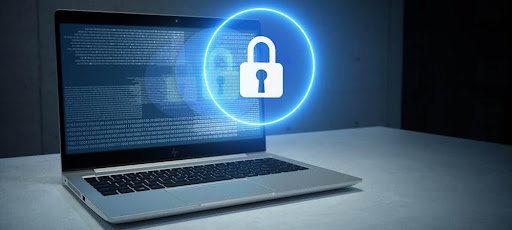The phrase “computer virus” describes a wide variety of malicious programs that may damage, steal information from, or otherwise disrupt the regular functioning of your computer. With the spread of technology and the internet, the danger presented by computer viruses has grown. Therefore, it’s more crucial than ever to be aware of the risks and to take measures to protect one’s computer systems.
What is a Computer Virus?
A computer virus is a harmful software that copies itself to spread to other computers. Threats like this may be distributed via various vectors, including malicious websites, downloadable programs, and email attachments. When a virus infects a computer, it may cause serious problems, such as decreased speed, file corruption, and even the theft of private information. In this article, we discussed only a few of the many issues that viruses may create.
The Consequences of a Computer Virus
Individuals and businesses might suffer irreparable harm if a computer virus were to spread. A computer infection might wipe out a person’s funds, steal their identity, and ruin their credit rating. The possible loss of proprietary information, production capability, and funds required for system repairs and restoration might have even more severe effects on businesses.
Types Computer Viruses
Boot sector viruses
Boot sector viruses infect a startup’s first sector of a hard drive. They pose a serious risk since they run automatically every time the computer boots, allowing viruses to spread quickly and cause damage. Floppy disks are a common vector for spreading viruses that target a hard drive’s boot sector. A computer’s boot sector will be corrupted once the disks are inserted. USB and networked hard drives are examples of portable storage media that may facilitate the propagation of viruses if infected. If a computer virus affects the boot sector, it might slow down the whole system and make it more challenging to operate. A virus in the boot sector might cause the computer to crash and become unusable. An infected computer may act strangely, such as launching and closing programs at will, if a virus has modified the boot sector.
Direct Action Viruses
Direct Action viruses are a kind of computer virus that infects a device and then spreads to other devices without the user’s knowledge. They are designed to spread quickly and cause damage to a computer’s operating system. Direct-action viruses are often spread by infected file attachments, malicious software downloads, and shared data across a network. Infected USB drives or other external storage devices connected to a computer might potentially serve as a conduit for their spread. Direct-action viruses spread from infected host computers to other computers in the same network. A computer virus’s malicious actions might reduce the system’s performance and make it more difficult to use. Direct-action viruses may cause unexpected freezes or crashes in infected systems, rendering them useless.
Multipartite Virus
Multipartite viruses are a form of computer virus that infects and spreads across numerous file types and/or system components. This virus replicates itself by copying itself from executable files and boot sectors to other files and directories on removable media. Furthermore, it may infect the operating system’s boot sector. Because of their complexity and the fact that they may infect both software and hardware, multipartite viruses pose a serious threat. You need to be very careful while downloading files and connecting your computer to external devices to prevent infection from a multipartite virus.
Polymorphic Virus
Polymorphic refers to a computer virus’s capacity to modify its code or structure to the host system it infects. Because of this, it becomes harder for anti-virus software to detect and destroy the virus after it has spread. Viruses of this kind are able to evade detection by using a wide variety of techniques, including encryption, compression, and code obfuscation. A polymorphic virus is one that can rapidly change its DNA to evade anti-virus systems. This is because each time a polymorphic virus infects a new file or system, it alters its own code. Some polymorphic viruses may cause serious damage to computers, including data corruption and even complete system failure. In order to keep your computer safe from malware, you need install up-to-date antivirus software. The same level of care should be used while downloading files as when connecting external devices to a computer. Furthermore, if you routinely back up your critical data, it may be easier to recover from an infection.
Resident Virus
Resident virus will infect any executable files that are delivered to a compromised machine, as well as the boot sector and device drivers. File corruption, data loss, and even system failures may all occur if a computer is infected with a virus. It may also be able to avoid detection by antivirus programs, making it much harder to get rid of. Maintaining up-to-date anti-virus software is essential for avoiding infection from this kind of malicious software. Be careful while installing programs and downloading data, especially when hooking up hardware to your computer. Aside from that, it could be less of a hassle to get back up and running after an infection if you routinely back up your critical data.
What is Antivirus?
Antivirus software is meant to protect computers and other electronic devices against harmful software, sometimes known as malware. Malicious software encompasses any programs that aim to compromise a system in some way. Viruses, worms, Trojan horses, spyware, and adware are all examples of malicious software. The files and other parts of the computer system are inspected by the antivirus software for signs of contamination. Files infected by malware will be removed or placed in quarantine. It would be impossible to keep computers virus-free without antivirus software. Malware has the potential to cause serious problems, such as the deletion of data, corruption of files, and even the freezing or rebooting of systems. The most up-to-date virus definitions and an up-to-date computer system are essential for providing adequate protection against emerging threats. Some antivirus programs include other features like firewall, email, and web browser protection to provide consumers the most comprehensive security possible.

Famous Antivirus
Bitdefender
Bitdefender Antivirus was created by Bitdefender, an industry-leading supplier of cybersecurity solutions. Its goal is to keep your device safe from malicious software and other online threats. Bitdefender Antivirus employs a combination of signature-based detection, behavioral analysis, and cloud-based threat intelligence to shield your computer in real time against malware, viruses, and other online dangers. All three of these analyses are performed online.
Norton
Norton Antivirus was designed by Norton Life Lock, a security company. Its goal is to prevent malicious software and phishing attacks on user PCs. Norton Antivirus protects users in real time against malware, viruses, and other unlawful activities by using many detection methods. These methods include signature-based detection, behavioral analysis, and cloud-based threat intelligence.
Kaspersky
Kaspersky Antivirus was developed by Kaspersky Lab, a well-respected developer of many security products. The software was created to protect users’ computers and other devices against malicious software and other threats found on the web. Kaspersky Antivirus offers innovative methods to protect users in real time from malware, viruses, and other online dangers, including signature-based detection, heuristics, and cloud-based threat intelligence.
Webroot
Webroot’s anti-malware protection is effective against spyware, adware, and ransomware, amongst other threats. In order to provide this constant real-time protection against new threats, the program makes use of cutting-edge technologies including cloud-based threat analysis.
Avast
Avast Antivirus provides defense from Malware, spyware, phishing attacks, and other forms of online peril are only some of the reasons why antivirus software like Avast Antivirus exists. The app may be downloaded for use on Windows, macOS, and Android computers and gadgets. Besides antivirus protection, Avast Antivirus also includes a firewall and a secure online browser. The company’s products have received several awards for their innovative design and superior performance in the cyber security industry.
About Author: The content is written by Maha. She has five years of experience in writing technology articles














